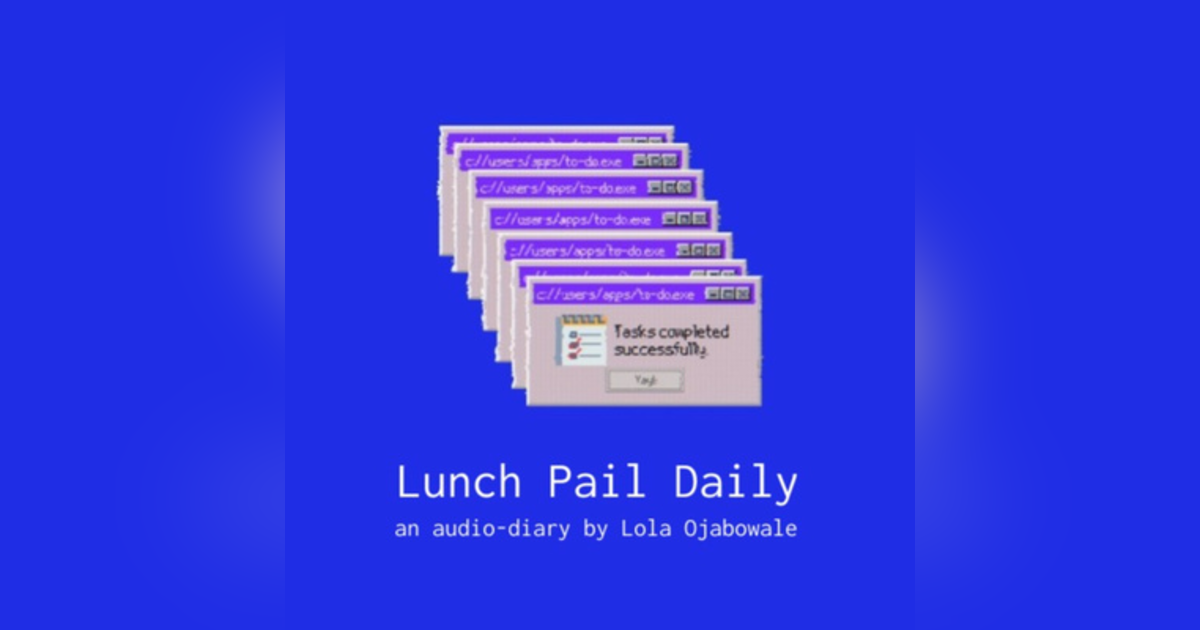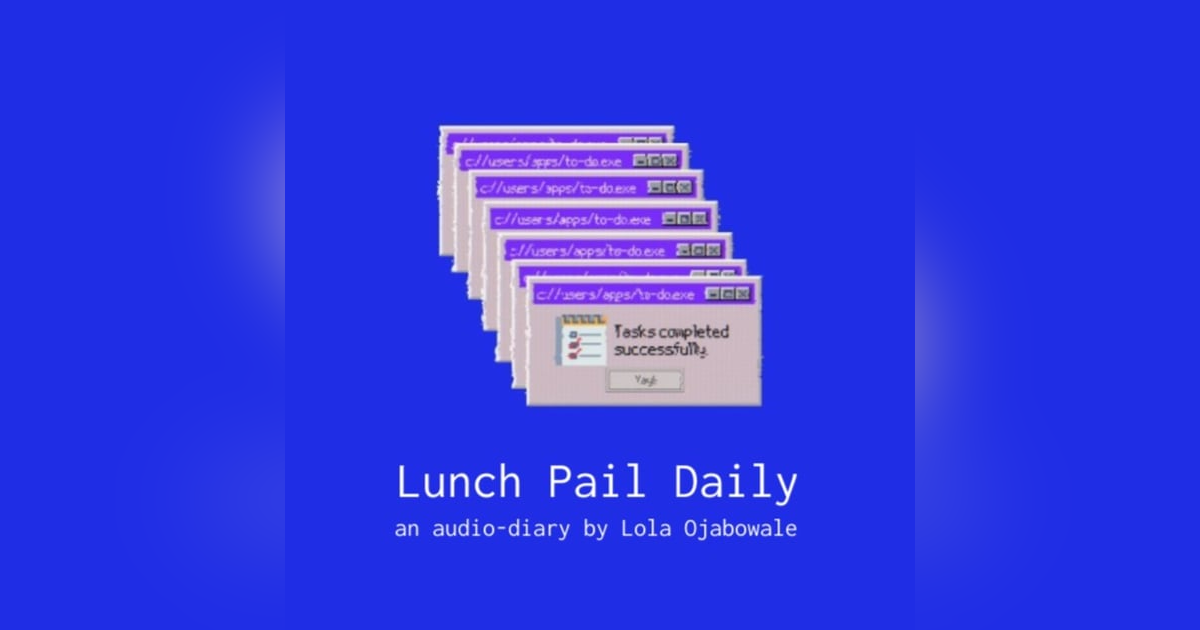#229 — 💻 The opportunity for developers in no-code

Jamming in this episode about why companies especially historically developer-first companies should explore marketing and serving no-coders/low-coders
What's up everybody? This is Lola Ojabowale, founder of Lunch Pail Labs. Welcome back to Lunch Pail Daily, my personal audio diary on building and growing Lunch Pail Labs, which is a digital product studio based out of Atlanta, Georgia. In today's episode, we're gonna jam about why developers should care about no code, or even why developer first companies might want to target no code, visual developers, low coders.
And this is actually a little excerpt from our presentation I'm giving later today to some developers about like no code and low code and wanted to jam about my thoughts here. So one trend I'm seeing with a lot of these platforms is their are increasingly being more open to allow custom code and integrations and APIs examples. Webflow has mentioned in their product roadmap, they're hoping to extend their plugin sort of marketplace and let other people kind of contribute to the platform. Adalo last year, released components and open it up to other people to contribute components. We've got Coda that open up packs, and even our providing grants for people to build packs for Coda air table has enabled air table apps softer, in their most recent raise also announced a move to have outside people contribute as well. I think this trend is occurring because of a couple of reasons. For one, for a platform to endure, especially like a no-code platform that's really trying to be the accessible alternative to building software, it really is going to need a ton of customization and serve the widest set of use cases.
Obviously there is the alternative for... I think there's almost like two options either go very, very wide set of use cases, or you go very, very niche. And that can be very successful that way, I think a lot of no code platforms are still on the kind of like, middle of like, oh, you actually can't do XYZ, if you decide to start with this platform. And everyone's kind of trying to expand to be the Oh, you can actually do any sort of sort of thing. I think, you know, airtable, even the least like pages, which is a move into sort of front end kind of development.
And so they're really going to need a ton of customization to serve the widest set of use cases. And even like some custom consulting work that I've done, anytime I'm like, Hey, I know you're trying to work with me to build something custom, but don't do custom. And even custom being like no code. How about you just work with this template and see if you get users for first or like, build this, like, work with this card thing. And every single time that I've had this conversation, people are like, no, but I want exactly what I want. And so I think there is this unwillingness for someone to sometimes make too many concessions. And these platforms themselves can't build the entirety of every use case. So letting people contribute and customize and grow just like if the Apple App Store, for example, only let Apple developers create apps like it wouldn't be the thriving ecosystem that it is now.
And there's also this popular stat by Gartner that says, by 2024 65% of all application development will be this no code, low code. And I think this explosion of no code development plus these platform trends to enable greater and greater customization. And by the way, some of the most low code low code platforms, you can build visually and take your code with you. So at that point, it starts to become very indistinguishable. Whether, like, what are the meaningful differences between low coding and doing other forms of development. And I really think in a couple of years, what this means is we're going to the people who we call, like, no coders and low coders, as kind of outsiders today are just going to be developers tomorrow, and platform trends. And so just like, you know, developer first companies might support like JavaScript and React, JavaScript, being similar things, Rails, or flutter, or whatever the popular frameworks are, I think companies are also going to want to start supporting these platforms, and enabling the users to to, to make use of whatever developer sort of tool that they have.
And I think that's going to to drastically expand the market. So you know, 65% of all application development will be this, like no code, low code, there's also going to be like a, like there is an ever increasing proliferation of software that's being created so much, much more software being created. And a lot of that software also being built with no code and low code.
And what that also means is, I think we're gonna I think we're entering into an age of a much, much larger market of potential developers. So current stats that I found online, there are about 26 million coders worldwide. I think there's probably can be like 10x that could 10x that who are no coders, low coders, also building and contributing software, and so lots, lots more people to be able to target and so that's my little case for no code, especially if you have a company that can target no coders. I think there's a lot of value there. So that's really it for me today on this jam on this Thursday, and I hope I I'll catch you all later.






